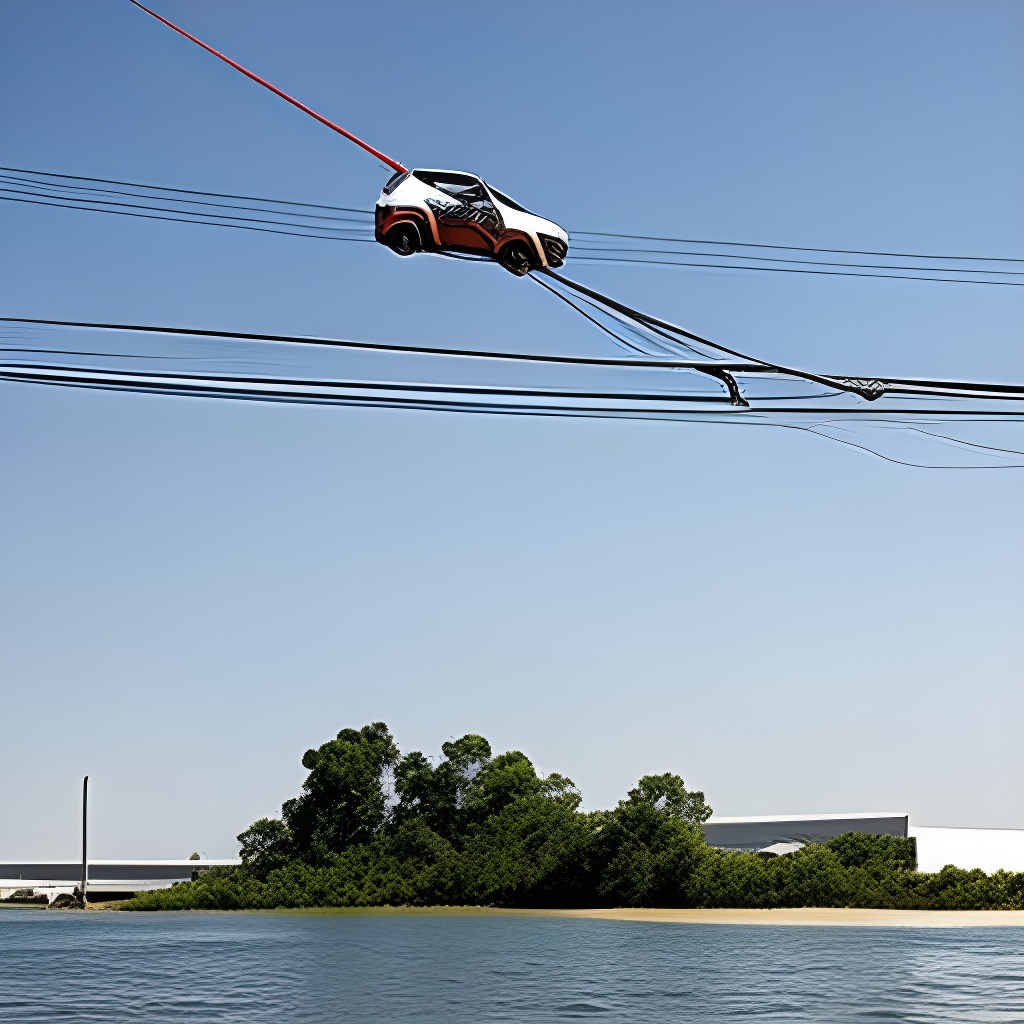
The above image was made with stable diffusion using the prompt 'A car dangling on a fishing line.'
Whether we like it or not, the future is radically transparent. The latest sign of this involves Toyota cars. According to Bleeping Computer, "Toyota Motor Corporation disclosed a data breach on its cloud environment that exposed the car-location information of 2,150,000 customers for ten years, between November 6, 2013, and April 17, 2023."
At this point, the government has our private data and uses it for various forms of tyranny. Big companies have our private data and sell this on the open market. Hackers have our private data and sell this on the dark web. And companies like Toyota can't even be relied upon to configure their IT infrastructure correctly.
Eventually, someone is going to release a general facial recognition app that anyone with a smartphone can use. Clearview AI has already released such an app to customers in law enforcement. Here's a quote from an article about that:
Once a photo has been scraped by Clearview AI, biometric face prints are made and cross-referenced in the database, tying the individuals to their social media profiles and other identifying information forever – and people in the photos have little recourse to try to remove themselves. ... CNN reported Clearview AI last year claimed the company's clients include "more than 3,100 US agencies, including the FBI and Department of Homeland Security." BBC reported Miami Police acknowledged they use the technology for all kinds of crimes, from shoplifting to murder. The risk of being included in what is functionally a "perpetual police line-up" applies to everyone, including people who think they have nothing to hide.
Clearview AI's 30 billion images were scraped from Facebook and other social media platforms. It's not clear that a person would even have to have a Facebook account to be included in the database. Merely appearing in the background of other people's pictures may be enough for Clearview AI to create a face print. And if this one company is publicly known to be doing this, it's likely that there are other companies with similar aspirations.
Transparent Future
In the small town where I grew up, there was very little privacy. Everyone knew everything about everything else. If my friends and I were smoking cigarettes behind the dentist's office, my mom would know about it by the time I got home. In a way, social media turns everywhere into a small town like this. But now that there are trackable computers installed in a wide variety of products, we've become far easier prey for a wide variety of goons.
Government goons use our data to attack us with the law. Corporate goons use our data to attack us with advertising. Identity thieves use our data to steal our money. And the whole information landscape is becoming a stalker's paradise.
To be honest, I think privacy is already functionally dead. My feelings on this are mixed. In general, secrecy is inefficient and often illusory. As governments and corporations become more transparent, the public benefits. At the same time, these organizations are too often predatory, and they're already harming the public using the data that's now becoming available to them. Instead of trying to chase the privacy we've lost, maybe it would be wise to focus our energies on limiting the power of these groups to prey on us remotely.
Read my novels:
- Small Gods of Time Travel is available as a web book on IPFS and as a 41 piece Tezos NFT collection on Objkt.
- The Paradise Anomaly is available in print via Blurb and for Kindle on Amazon.
- Psychic Avalanche is available in print via Blurb and for Kindle on Amazon.
- One Man Embassy is available in print via Blurb and for Kindle on Amazon.
- Flying Saucer Shenanigans is available in print via Blurb and for Kindle on Amazon.
- Rainbow Lullaby is available in print via Blurb and for Kindle on Amazon.
- The Ostermann Method is available in print via Blurb and for Kindle on Amazon.
- Blue Dragon Mississippi is available in print via Blurb and for Kindle on Amazon.
See my NFTs:
- Small Gods of Time Travel is a 41 piece Tezos NFT collection on Objkt that goes with my book by the same name.
- History and the Machine is a 20 piece Tezos NFT collection on Objkt based on my series of oil paintings of interesting people from history.
- Artifacts of Mind Control is a 15 piece Tezos NFT collection on Objkt based on declassified CIA documents from the MKULTRA program.
Love everything about this post and how you framed the whole privacy issue when it comes to how technology is being used. Especially by government and corporate special interests. I'm reminded of how shocked I was by the decisions school administrators would make to 'protect children' when it was really just authoritarian and oppressive policies and technologies that made it hard for the youth to feel free and safe. Sadly, this exacerbated the misbehaviors and overall mental health crisis.
These administrators genuinely thought they were doing the right thing to surveil and control the kids. Yet our fears of liability were more important than our desire to innovate and find new ways of solving problems together. So their actions made it worse. How do we help support a society in which those in power develop tools and practices that actually support public safety and wellbeing?
The surveillance state in all its guises is problematic. Kids should be protected from this, not subjected to it. I can see how electronic monitoring would harm mental health. It's weird to me that so many authority figures spy on everyone.